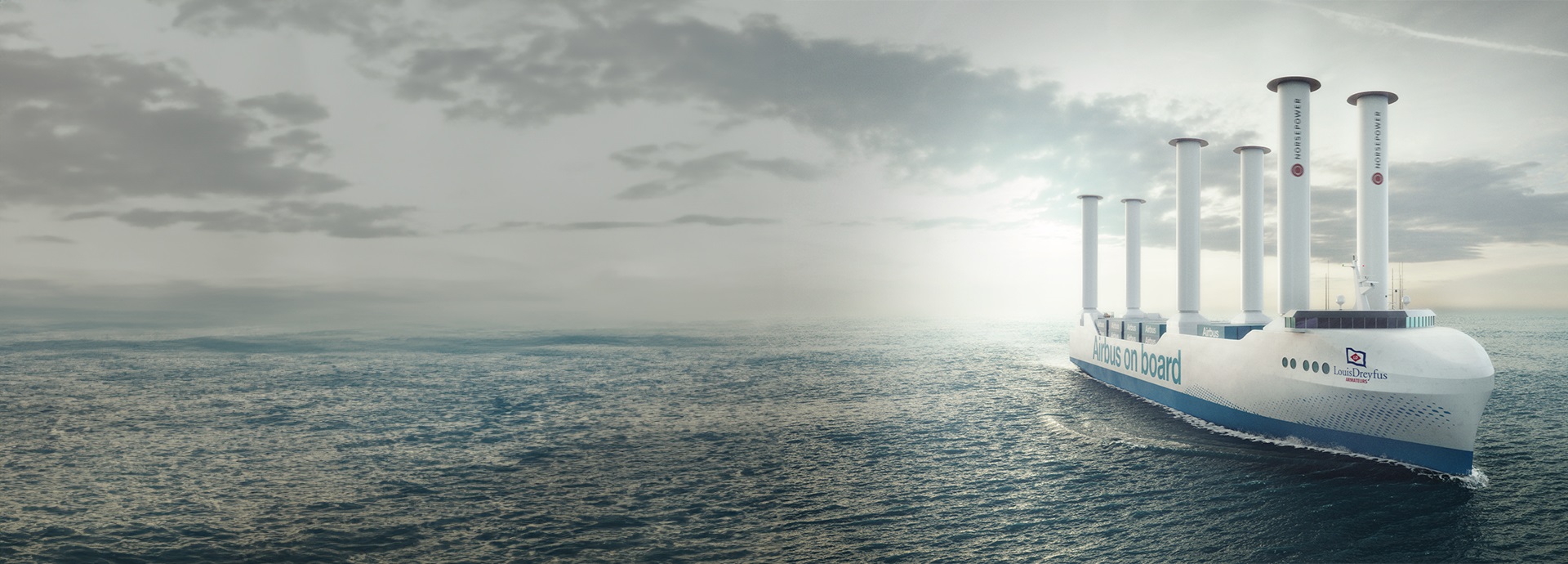
Case studies

Why methanol engines mean big cuts in emissions for Louis Dreyfus Armateurs‘ RoRos
As part of Airbus’s client commitment to reduce fuel burn and CO2 emissions from its transatlantic fleet by 50% by 2030 compared to a 2023 baseline, Louis Dreyfus Armateurs has ordered three new RoRo vessels equipped with methanol engines and rotor sails.
Louis Dreyfus Armateurs transports plane parts for Airbus using a fleet of RoRo vessels. The company plans to expand its existing Atlantic fleet with three new fuel-efficient RoRo cargo ships to lower emissions.
The new vessels will each be powered by two dual-fuel Wärtsilä 32 methanol engines. These highly efficient engines can run on green methanol to greatly reduce emissions. Wärtsilä will also supply the associated methanol fuel supply system as well as the Selective Catalyst Reduction (SCR) systems for those engines.
In addition to being able to run on green methanol, each vessel will have six rotor sails to further reduce emissions. An energy optimisation system will also help lower the environmental impact of the vessels.
The predicted emissions reductions are impressive: a reduction of CO2 emissions by 50% is expected by 2030 compared to 2023 - thanks to an innovative RoRo ship design including wind and green methanol propulsion. Louis Dreyfus Armateurs will offer a regular fortnight service on the transatlantic route, sailing at 14kn – to best combine decarbonisation with a reliable and cost-efficient service. The new RoRo vessels can also carry more cargo than their current fleet. In this way they not only support Airbus’ plans to reduce CO2 emissions but also to ramp up production of their A320 family.
Leveraging Wärtsilä’s long expertise with methanol
Methanol is emerging as a leading candidate for decarbonising shipping. That’s because the fuel offers simple handling and storage, reliable combustion and near carbon-neutral power when made using renewable electricity and captured carbon.
The Wärtsilä 32 engine is one of the most widely used engines in the shipping industry with an over twenty-year track record of reliability. The methanol version of the Wärtsilä 32 can run on regular marine fuel as well as methanol, switching instantly whenever needed to ensure optimal performance.
The Wärtsilä methanol engine design is a proven solution based on the company’s long-established methanol expertise and has been powering vessels since 2015. The Wärtsilä 32 methanol is used for main engine applications – both direct drive as well as diesel electric – as well as being used as an auxiliary engine.
Louis Dreyfus Armateurs new vessels are being built by Chinese shipyard Wuchang Shipbuilding, a division of China State Shipbuilding Corporation (CSSC). Delivery of the first vessel is set to begin in 2026, helping Airbus to reduce by 30% the CO2 emissions from all maritime operations by 2030 vs 2015.
Greatly reduce emissions from transatlantic shipping of parts for Airbus aircraft.
Wärtsilä 32 Methanol engines, methanol auxiliary system and NOR after-treatment system, all working in tandem with rotor sails.
50% reduction in fuel burn and CO2 emissions from Airbus’s transatlantic fleet by 2030 compared to 2023.





